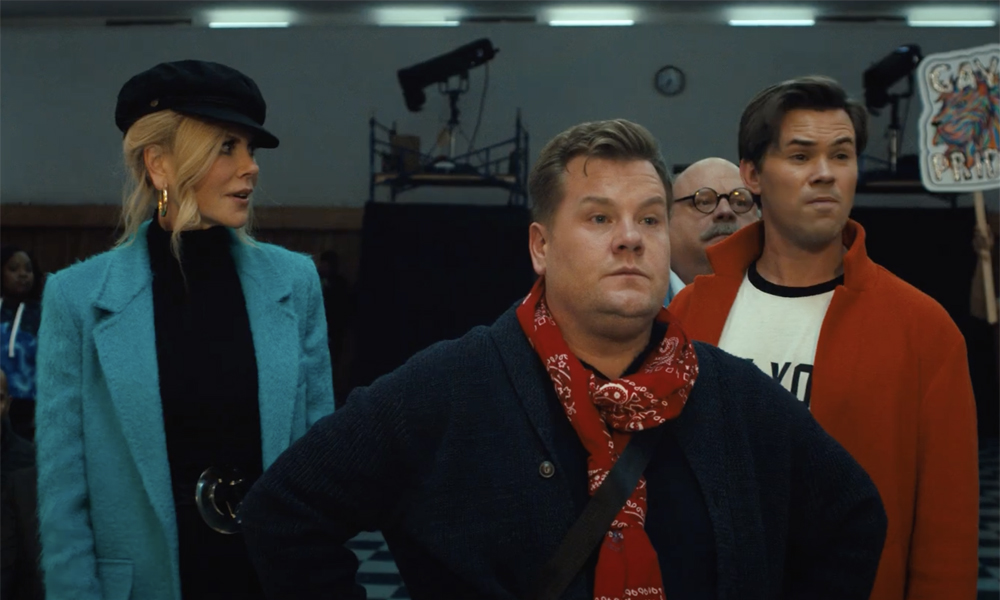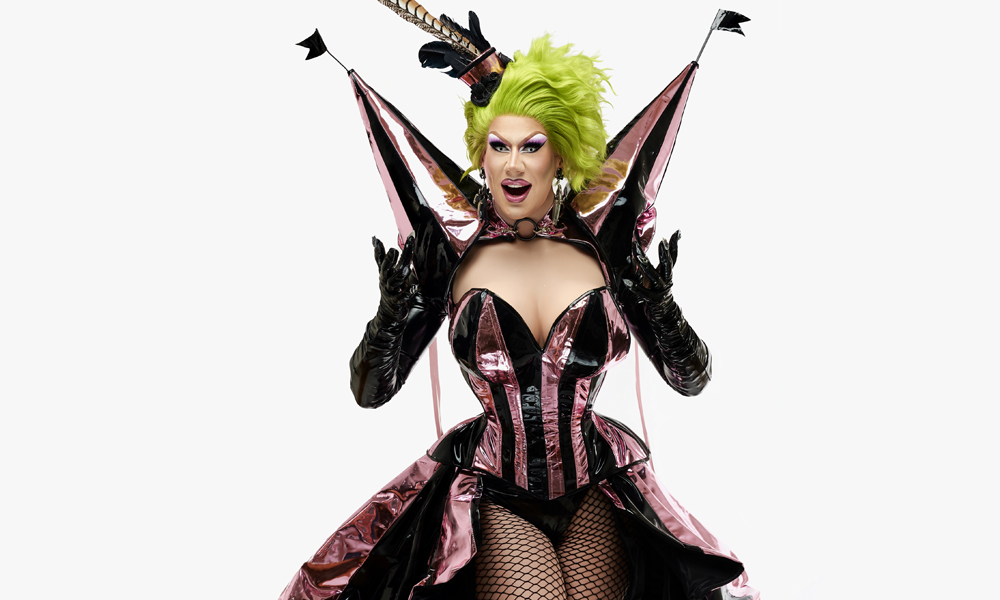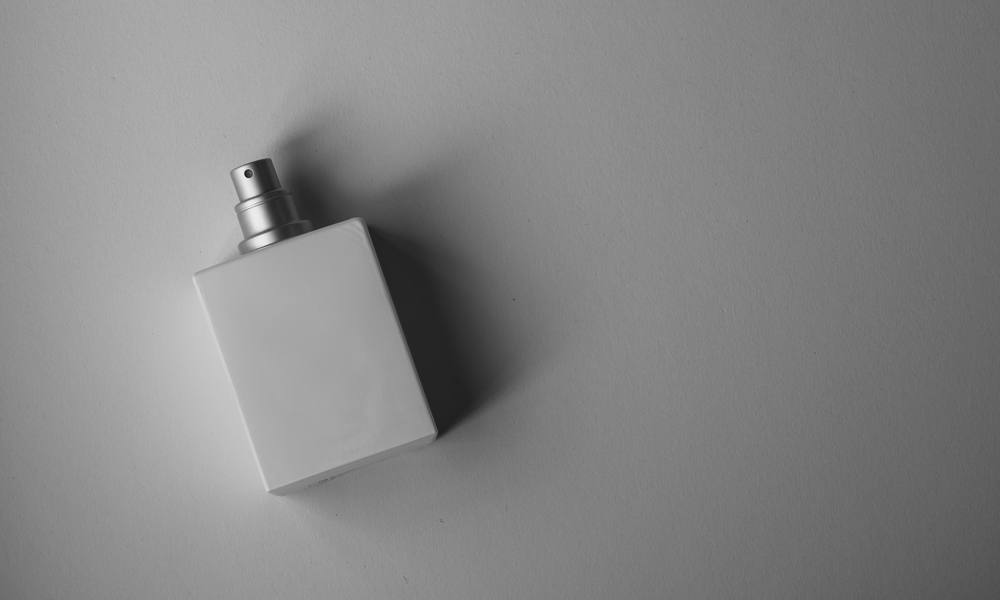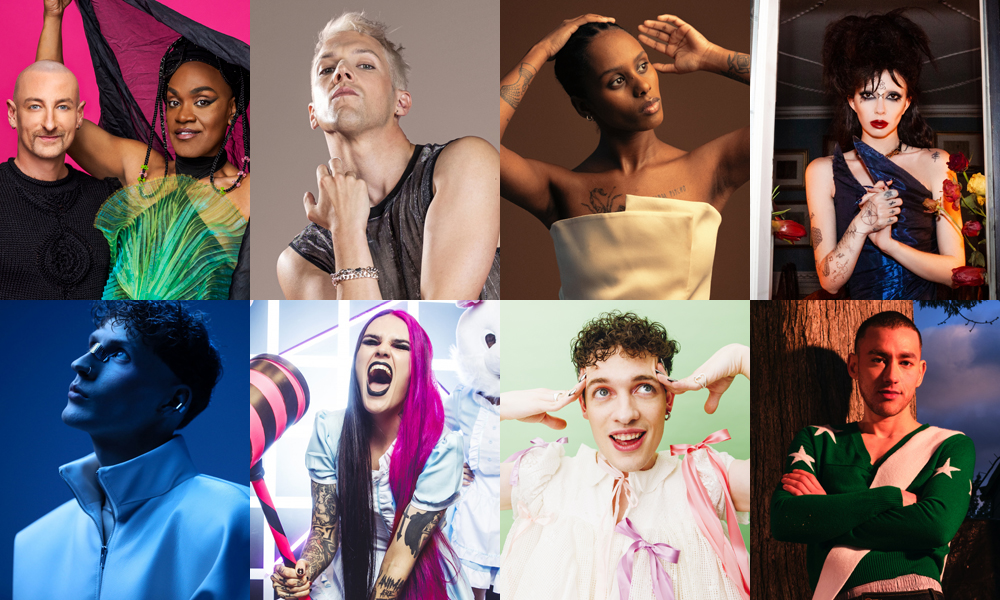By homophobic, do you mean too gay?…
By: Tristan Coolman
Recently, I spent a really relaxing day off work watching some great Queer cinema. After making breakfast it started out with watching Happiest Season with my mum. I think many queer folks can relate to watching such a film with their cis-heterosexual loved ones as a live split screen where you watch the movie and peek over to see analyze the slightest reaction of our company during particular scenes. We both enjoyed it, chatted for a bit afterwards about my coming out and went on with our day.
A few hours later I came across articles criticizing the casting and performance of another recently released Queer film – The Prom and specifically James Corden. I read the articles and got curious to watch the film for myself.
Corden plays the role of Barry Glickman, co star to Meryl Streep’s Dee Dee Allen, both of whom receive scathing reviews of their debuting production about the life of Elenor Roosevelt. In an attempt to handle the subsequent PR backlash, alongside friends Nicole Kidman playing Angie Dickinson and Andrew Rannells playing Trent Oliver they discover the plight of a Emma Nolan played by Jo Ellen Pellman, a teen in Indiana who is fighting for the right to attend prom with her girlfriend. They plot to use their celebrity influence to help Emma in her fight for an inclusive Prom while repairing their reputation.
One criticism I agree with is the casting of Corden, a white straight male playing the role of a gay man. There is a long list of celebrities; who in the push for better representation, should have played the role. Tituss Burgess, Dan Levy, Neil Patrick Harris, Billy Porter, Adam Lambert, Cheyenne Jackson, Sean Hayes – you get the point. This was not an issue of slim pickings. With so many different casting directions though it is difficult to justify the production in settling for someone who isn’t Queer for the role of Barry Glickman. It was lazy casting at best.
Many of these criticisms don’t just stop at Corden’s casting but his acting. The LA Times starts their dive into the social media backlash by listing a bunch of adjectives pulled from social media: “Aggressively flamboyant, homophobic, stereotypical and grossly inappropriate” and centred around a tweet by comedian Phillip Henry which reads “The unrepentant violence that is James Corden doing a homophobic portrayal of a gay man in a musical about gay rights”.
After reading these reviews I decided to watch the film for myself and did not find much wrong with Corden’s portrayal myself. Thinking I may be missing something I texted a friend and encouraged her to watch it, which we did. And as I began my second viewing and her, we feverishly texted back and forth. She agreed someone else could have occupied the role but there wasn’t much wrong with Corden’s portrayal.
Maybe it’s confirmation bias; or maybe it’s just an uncomfortable truth?
Looking back at how Queer folks are portrayed in cinema we are either historically femme and flamboyant, hairdressers, actors, florists, wedding planners or we have some sort of mental illness, we’re jealous enough to murder. Theres no arguing that historically the portrayal of queer folks has inflicted long lasting damage to our community.
But Corden’s portrayal is not homophobic. The criticism however in reviews and on social media is rife with it. The truth is there is a place for a character like Barry Glickman in a production like The Prom because they do reflect Queer people in our community. Its a character I saw a bit of myself in and in reading these reviews, I saw these criticisms as homophobic attacks on me. As Dee Dee proclaimed early in the film when confronted with a review about her performance “that’s not criticism, that’s a personal attack”.
Do we as a community crave normalcy so much that we willingly attack those from within our own circles when they jeopardize it?
We’ve all seen it on Grindr and Scruff. “Masc for Mac”, “no femmes”. I’ve experienced it based on my ethnicity. Other profiles who are overtly accepting go into the realm of fetishizing these individuals when many don’t want their personalities or their skin tone to be the reason for sexual attraction and a shorty-term temporary feeling of belonging that comes from hooking up with someone.
Perhaps its a theme our community continues to struggle with, that someones character and their self-worth is only skin deep. When criticism for a character who has lines like “going to prom in this day and age isn’t a crime” stops at their femininity and flamboyancy, there’s a problem. It’s a problem that is reflected in some of our reality. In my reality.
This is a character that is femme, flamboyant, overweight and uses Scruff. Aside from the skin tone, this character is literally me. Everything good and flawed I saw reflected in Barry I see in myself. It’s hard not to see the criticism of Barry and not think or feel that is a criticism of me for being me. Its perhaps a confirmation of what I’ve felt in my journey navigating the community.
At one point Barry shared “I just need a win, I’m so sick of rejection”.
Barry, I can relate.






Keisha Disher / 16 December 2020
Hi Tristan,
I watched Prom with my wife last night (I identify as queer) and we both genuinely enjoyed the film. The music and dancing were energetic, and I found the ending quite moving, I was aware of the story being a loose adaptation of true events in the USA (I am Canadian) and found that the resulting storyline was emotion-provoking and true to me as a queer individual.
Better queer representation in film is something that I am becoming more conscious of and something I want to consider before consuming content blindly. For example, as I write to you I choose to listen to queer musician Jen Foster.
From my experience reading about of marginalized folks from the LGBTQ2S+ community in Hollywood, I have come to learn and understand that many queer folks get pidgeon-holed in queer-specific acting realms. Many queer folks are not frequently given the opportunity to act in straight roles in the same frequency that straight actors are cast in gay roles. Questions have been raised about how this happens: is it because there are fewer queer actors? Is the nature of casting still discriminatory?
The question you present in your article is whether the casting of James Cordon as the role of Barry was homophobic. I agree with you, that overtly it is not. Clearly you identified with significant parts of Cordon’s portrayal of the character. And indeed, it is a gay movie featuring gay-specific issues! How could it possibly be homophobic?
I like James Cordon. I think he is a hilarious comedian and I enjoy watching him perform. I enjoyed his portrayal of Barry in Prom. That said, I can see how folks who have experienced more significant discrimination in their lives could find it frustrating that another straight actor was playing a role that could or should have been saved for a queer actor.
Regardless of Cordon’s acting, I agree that I prefer to subscribe to films that feature queer actors in lead queer roles. To me it is more about supporting a community that has been historically marginalized and ensuring we help lift up those who haven’t always had equal opportunity in tough industries. It was valuable to me that the role of Emma was played by queer actor Jo Ellen Pellman, so I still found value in watching Prom as a way to support other queer actors.
I think that working towards better representation of queer folks in film is a work in progress, and I will continue to try to consume film and other types of content with that in mind. I don’t mind if some gay folks and straight folks play in queer roles. At least there are queer roles to play! Lets just try to improve as a community to lift up the people trying to make change for the better.
Yours truly,
Keisha Disher